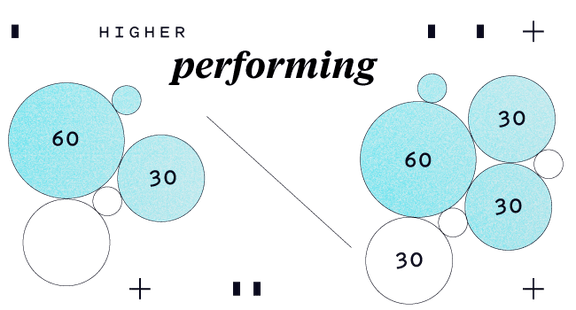
Intelligent Products
Intelligent Products and technology companies: Scaling to the future.
Business today is all about scale. Simple enough, right? Most want to grow.
Whether financially, geographically, technologically, or even by team member footprint, today’s modern technology solutions can dramatically drive a business’s ability to scale.
But it’s not just growth; it’s scale with efficiency. Scale with velocity. Scale with a sound, data-driven strategy that doesn’t just take variables into account, but actively plans for every detail, every situation, every eventuality that might arise.
As a technology company, you are in a unique position to achieve the scale you want, at the pace you need.
Let’s look at some of the ways you can use AI/ML and product intelligence to help realize the value of this technology revolution.
Scaling financially: Growing to success
A report by International Data Corporation (IDC) found that organizations that adopt AI technologies could experience a 50% reduction in costs related to business process automation by 2025. [1] Fifty percent. That’s a significant saving. By harnessing the power of AI/ML, technology companies can automate repetitive tasks, optimize operations, and reduce costs. Intelligent Products also empower organizations to make informed decisions based on real-time insights. And that leads to identifying revenue-generating opportunities, streamlining processes, and driving financial growth.

Scaling geographically: Pushing boundaries
Growth is an inside job. Or an inside-out job, to be more precise. And by taking advantage of product intelligence, tech companies can facilitate detailed analysis of market trends, consumer behavior, and cultural nuances to make informed decisions regarding new geographical markets. Algorithms can tailor products and services to meet the needs of diverse customer bases with localized offerings and better customer experiences.
Scaling technologically: Unleashing innovation
The dreaded ‘I’ word. But Innovation is key when looking to scale technologically. And much of that has to do with data, because as a business grows, so grows the volume of data. By embracing product intelligence, technology companies can build robust technological infrastructure that scales seamlessly, ensuring systems can handle
increased user traffic, data volumes, and processing requirements. And, importantly, draw actionable insights for data-driven decisions.


Scaling the workforce: Cultivating agility and building a resilient team
According to a Harris Poll, 72% of US employees would like to delegate routine, mundane tasks to AI. [2] And we couldn’t agree more. Companies that implement AI technologies can achieve a marked reduction in time spent on routine tasks—freeing up valuable employee time for more strategic, creative, high-value activities, while streamlining processes and enhancing team member satisfaction. Intelligent Products can help tech companies attract top talent looking for innovative and dynamic work environments and encourage teams to develop new skills and enhance their expertise.
So, what does all this mean for specific industries within the technology space? Here are some possibilities in some of the most active and inclined sectors.
Software and services
According to Forbes, 79% of executives believe that AI is driving transformative improvement in workflows and tools for knowledge workers. [3] Intelligent Products can help unlock growth and accelerate the ability to improve operational efficiency, optimize technology, enhance employee productivity, scale resources, and increase customer satisfaction. These AI-based solutions ensure tech companies can keep up with faster release cycles, reduce churn, and support higher adoption and ARR for increased competitiveness.
Hardware and Electronics
Cost, complexity, and time-to-market when scaling from prototype to mass manufacturing can be supported more effectively by Intelligent Products. They improve quality testing and validation, lower production costs, and increase profit margins.
Smart sensors enable more accurate predictions and better decision-making. In fact, Venture Beat reports that AI-driven demand sensing is reducing inventory errors in supply chain management by up to 50%. [4]
Hardware and electronics companies can also gain complete transparency into inventory, cash flow, and sales forecasts, giving them a full picture of the customer to ensure continued success.


Semiconductors and Other Electronic Components
Gartner predicts a 3.6% decline in worldwide semiconductor revenue growth in 2023. [5] Consider building an Intelligent Product to weather the storm. In the semiconductor and electronic components sector, AI-powered automated testing is helping to assess the performance and reliability of integrated circuits. Intelligent Products are demonstrating value in assembly, testing, and packaging (ATP). These products are also preventing supply chain disruptions, providing valuable and timely insights, while enhancing overall profitability and efficiency.
Internet and Digital Services
Intelligent Products set up internet and digital services companies to grab attention and create new opportunities in a highly competitive dot.com landscape. They help increase economic value by cutting the cost and time to deliver service. AI can be used to analyze and predict user behavior and preferences, setting the stage for highly personalized experiences and increased customer retention.
Sophisticated ML models optimize pricing strategies based on demand, customer behavior, and competitor pricing, maximizing revenue and profitability. Operational efficiency is boosted by automating routine tasks such as customer support, search engine optimization, ad placement, and image recognition and processing.

Telecommunications and Network Technology
Intelligent Products help manage large-scale Internet of Things (IoT) and 5G deployments, assist in intelligent network slicing, engage in remote troubleshooting, and monitor network performance in real-time to enhance Quality of Service (QoS). Through real-time analytics and demand forecasting, they are preventing network overloads and ensuring optimal service quality with reduced downtime and boosted network efficiency.
Additionally, these products can play a pivotal role in network management and resource allocation. They enhance cybersecurity measures, promptly identifying and mitigating potential threats to safeguard critical infrastructure.
Simply put, Intelligent Products are catalysts for scale and growth at velocity. By incorporating product intelligence into your business, technology companies can scale financially, geographically, and technologically, and with a talented, satisfied workforce that is essential for success—doing more at scale for less.
Less money. Time. Effort. Resources.
That’s what technology companies can achieve with Intelligent Products. Learn more by reading our whitepaper on Intelligent Products.
[1] IDC, “Worldwide Artificial Intelligence Systems Spending Guide,” 2021
[2] Venture Beat, “Report: 72% of U.S. Workers Want to Delegate Mundane Tasks to AI,” 2022
[3] Forbes, “Getting Practical. How AI is Empowering Knowledge Workers,” 2019
[4] Venture Beat, “With AI, Accurate Demand Forecasting is Possible,” 2023
[5] Gartner, “Gartner Forecasts Worldwide Semiconductor Revenue Growth to Decline 3.6% in 2023,” 2022